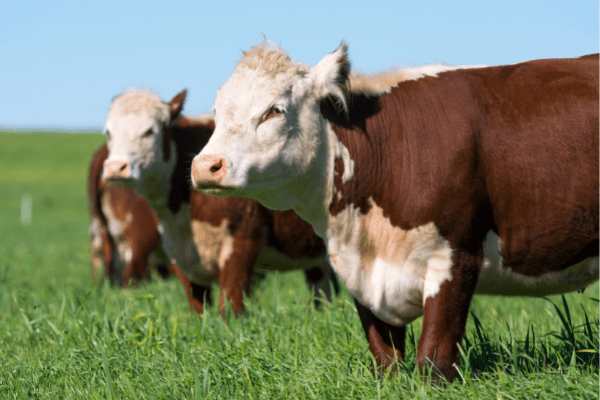Raising livestock or poultry is hard work. Making money at it might be even harder. Along with spending long, grueling hours planting pastures, fixing fences and tending to animals, it takes a certain amount of business savvy to make an operation profitable. Not to mention, finding a processor with the capacity to make the animal into a sellable product, like Driftless Provisions artisan meats.
With interest in antibiotic-free meat on the rise, consumers and hopefully suppliers will be looking to the smaller farms to stock their fridges. Smaller herds typically require less medical intervention, especially those that are pastured and grass-fed. This increase in demand will, in turn, require an increase in smaller, local processing facilities such as This Old Farm and Nordik Meats.
This is the primary reason the Food Finance Institute exists: to share financial education and tools with farmers, as well as with food entrepreneurs, to help them to not only keep their enterprises viable but also to increase profits and scale successfully. Much of our programming is sector-specific, ensuring that each type of food or ag business receives the right kind of assistance and education.
To aid livestock and poultry farmers, specifically, FFI has teamed up with Farm Animal Concerns Trust (FACT). For nearly 40 years, this Chicago-based nonprofit has helped farmers transition to healthier, more humane ways of raising food-producing animals through grants, scholarships, mentorships and webinars. Tune into the latest Edible-Alpha® podcast to hear Larissa McKenna, humane farming program director at FACT, discuss the organization’s impact in-depth.
When farmers in FACT’s network requested more business-specific resources, the organization turned to FFI for help. So, together, we are excited to offer three levels of FREE financial programming for humane livestock and poultry farmers: an intensive boot camp, on-demand virtual courses and online webinars. Get more information here, and submit your applications by October 31.
The partnership between FFI and FACT makes a whole lot of sense. Although FFI’s main focus is the financial viability of food and farm businesses while FACT’s is improving animal welfare and human health, both organizations want the same thing: healthy, sustainable, thriving farms. And both organizations provide resources to foster exactly that.
As it turns out, besides being much healthier for livestock and poultry, humane practices can also benefit farmers’ bottom lines. For example, by raising animals on pasture, farmers don’t have to buy as much grain for feed or spend time and money spreading manure. They can also improve their soil quality and biodiversity on-farm, which pay off in dividends in the long run. What’s more, in many cases, farmers can charge more for their animal products while attracting conscious consumers who want to know where their food comes from. Achieving a third-party animal-welfare certification can boost brand awareness and credibility even more.
Sure, transitioning to humane practices costs money, but that’s exactly why FACT provides grants for on-farm improvements and scholarships for education. When farmers take advantage of FACT’s resources and check out FFI’s extensive financial-education assets, they’ll be well equipped to run a successful, sustainable, healthy and humane farm business.

Larissa McKenna, humane farming program director of the Farm Animal Concerns Trust (FACT), joins FFI farm outreach specialist Andy Larson for a riveting discussion on the benefits of raising animals humanely. Along with improved animal welfare, humane practices can promote human and environmental health—and be an economic boon for farmers. Learn all about FACT’s programming and impact, including a new partnership with FFI!
And now, our roundup of the best food and beverage finance news, events and resources from around the web…
Business Model Insights
- ‘The Etsy of health food…’ Online shopping platform BUBBLE unveils self-service platform, plans move into perishables (FoodNavigator-USA)
The fast-growing platform provides new routes to market for emerging food brands that lack the bandwidth to set up their own direct-to-consumer operations, and its new self-service platform enables vendors to start selling within days. - 4 sustainability strategy questions food companies should be asking (GreenBiz)
- ‘Now we work with thousands’: How getting on TikTok transformed this drink brand’s influencer strategy (Digiday)
Raising Capital
- rePlant Fuels Food System’s Shift to Regenerative Agriculture with $2 Billion for Farmers to Build Soil Health (Forbes)
rePlant Capital aims to increase farmer profitability and environmental outcomes by financing the transition of farmland from “agrochemical” practices to regenerative and organic agriculture. - Shifting The Paradigm: Building Bridges Between Old & New to Transform the Food System (Raising Regenerative News)
- 8 Portfolio Assets Are Key to Your Startup Valuation (Startup Professionals Musings)
CPG/National Brands
- Why the food and beverage industry is building toward the future in 2021 (Food Dive)
Pandemic-related increases in consumption and a revitalization of CPGs are leading to more big facility construction projects, but challenges in staffing and supply chain may cloud growth. - What will it take to save sliding sales of D2C subscriptions? (FoodNavigator-USA)
- Survey: Consumers expect more from natural products brands (New Hope Network)

Market Trends
- Conventional food prices rising faster than organics (New Hope Network)
Organic foods traditionally are more expensive than conventional foods, but a recent analysis by Magnify Money found that price gap could be narrowing. - E-commerce to account for 20% of U.S. grocery market by 2026 (Supermarket News)
- The Next Big Things: Our Top 10 Food Trends for 2022 (Whole Foods Market)

Farming and AgTech
- Journalist-Turned-Cattle Farmer Beth Hoffman on the Impossible Math of Starting a Farm (Civil Eats)
The author of Bet the Farm talks about becoming a new farmer in middle age, the huge barriers to entry, and preparing for climate change. - Resilience ag marketing, thriving amidst uncertainty (Eco Farming Daily)
- Congress promised debt relief to farmers of color. They might not get it (Grist)
 Deals/M&A
Deals/M&A
- Kelp grower completes funding round, adds business partners (Mainebiz)
Atlantic Sea Farms will expand after raising $3.1 million in a funding round led by Desert Bloom Food Ventures, which invests in companies that make healthy and regenerative food accessible to all. - Newly launched Do Good Foods raises $169M to turn food waste into animal feed (Food Dive)
- Dawn of the Robocorn? Micro-Fulfillment Robot Specialist Fabric Raises $200M on $1 Billion Valuation (The Spoon)

Industry Events
Virtual events:
- FFI Webinar: It’s closer than you think – Preparing to apply for the next round of Value-Added Producer Grants: 11/8
- American Food Manufacturing Summit: 11/16–11/18
- Food as Medicine Summit: Bay Area: 11/17–11/18
In-person events:
- MOSES New Farmer U: 10/29–10/30 in Willow River, MN
- Process Expo: 11/2–11/5 in Chicago, IL
- Digital Food & Beverage: 11/10–11/12 in Austin, TX
- Sustainable Agriculture Conference: 11/13–11/15 in Durham, NC
- PLMA Private Label Trade Show: 11/14–11/16 in Chicago, IL
- Nutrition Capital Network Fall Investor Meeting: 11/16–11/17 in San Francisco, CA (virtual hybrid event)
- Food as Medicine Summit: Bay Area: 11/17–11/18 in San Mateo, CA
- Iowa Organic Conference: 11/28–11/29
- NOSH Live Winter: 11/30–12/1 in Santa Monica, CA
- Midwest Food Products Association 2021 Annual Convention & Processing Crops Conference: 11/30–12/2 in Wisconsin Dells, WI
- Organic & Non-GMO Forum: 12/1–12/2 in Minneapolis, MN
- Organic Grower Summit: 12/1–12/2 in Monterey, CA
- BevNET Live Winter 2021: 12/6–12/7 in Santa Monica, CA
- CSS & Seed Expo: 12/6–12/9 in Chicago, IL
- ACRES USA Eco-Ag Conference & Trade Show: 12/6–12/9 in Cincinnati, OH
- Intertribal Agriculture Council Annual Conference: 12/7–12/9 in Las Vegas, NV
- Savanna Institute Perennial Farm Gathering: 12/9–12/11



